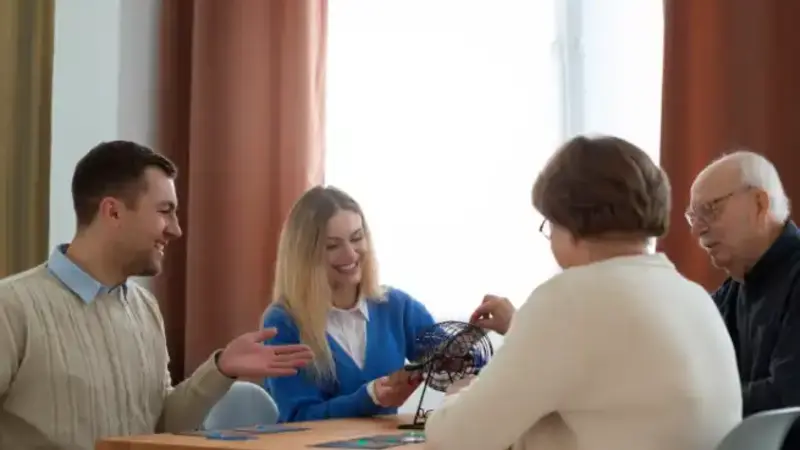Retirement is a passageway into a new life with new experiences and purposeful relationships. Most elderly citizens have discovered that with the end of big family houses, they have become free of any chores that come along with housekeeping. With such a transition, there is more time to enjoy hobbies and interests that people could not have before.
The modern senior residential resembles a dynamic and social club. People have spaces in which they can interact socially daily. Independent living communities provide atmospheres filled with activities, entertainment, and relationship-building opportunities. We will discuss how these settings provide seniors with active lives that entail a rich social experience.
Creative Expression/Arts
Painting, pottery, and crafting are all pursued at community art studios weekly. Professionals find their innovative side and discover new people who possibly share some interests. Most of the communities hold art exhibitions in which the people in the community present their completed works and celebrate their achievements collectively.
Choir rehearsals and instrument classes, as well as appreciation orchestras, are available in the music rooms. Community concerts and informal community gatherings may frequently feature resident musicians. More frequently, guest artists come and perform, as well as educate participants about their new skills.
Health and Fitness Programs
Fitness centers on-site are equipped with senior-specific and senior-ability equipment. Community pools offer all levels of mobility Water aerobics classes. Participants of the walking groups make new friends and stay friends by going on walks together in their neighborhood trails and parks.
Wellness programs include nutrition, health management, and stress management skills. Sessions of yoga and tai chi are flexible and conducive to peaceful social settings. Recess or outdoor fitness zones and meditation gardens allow individuals to participate in groups and spend personal time in silence.
Learning and Education
Lifelong learning makes college-level courses available to people living in the community. After two or three years, book clubs start to meet monthly to discuss popular novels, biographies, and standout literature. Computer classes allow residents to keep in touch with their family and acquire new digital skills in order to have some fun personally.
Local university guests speak about history, science, and the events of the day. The discussion groups are solving issues that arise from interesting conversations and connections among neighbors. Community libraries offer solitude to people during the process of reading and conducting their research.
Dining and Food Experiences
Dining rooms are offered in restaurant style so that each meal can be a social gathering place. Professional cooks serve a wide range of menus with international products (cuisines) as well as seasonal products. These are special themed dinners based on holiday and cultural traditions to which the whole community is joined.
Demonstration kitchens discuss new recipes, methods, and education in actual cooking courses. Happy hour and wine tastings can help offer a less formal setting to chat with and create friends.
Entertainment and Recreation
Game rooms include billiards, card tables, and board games where residents can play each other. Then, bridge tournaments, poker nights, and trivia contests make the weekday social programs interesting. Cinema screens display not only old movies but also new ones that suit all entertainment tastes.
Professional entertainers are performing concerts, comedy, and dance performances in communities. Talent shows in the neighborhood present unknown abilities and motivate the neighbors to get creative. Dance lessons are also used to learn new steps, and social dances provide a good opportunity to practice in encouraging settings.
Community Service Projects
Volunteer opportunities also bring the residents into important relationships with schools, charities, and nonprofits in the area. Each mentoring program is a relationship between a senior and a younger person based on the experience and wisdom they have. Children of all ages have common aspirations concerning environmental initiatives, such as recycling projects and gardening.
Friend includes fundraising projects which provide residents with an opportunity to organize various committees and plan various activities and events together. Social and educational interactions between children and the community are facilitated through the reading programs. These services allow the residents to stay purposefully busy and create relationships across their community borders.
Independent living communities form a setting where social opportunities can combine like ringing harmonic tunes, and residents explore new interests, build relationships that endure over lives, as well as live active lives that make this stage in life meaningful and satisfying. Such communities offer the freedom of a worry-free life where members of the community will have time to do whatever they want.
